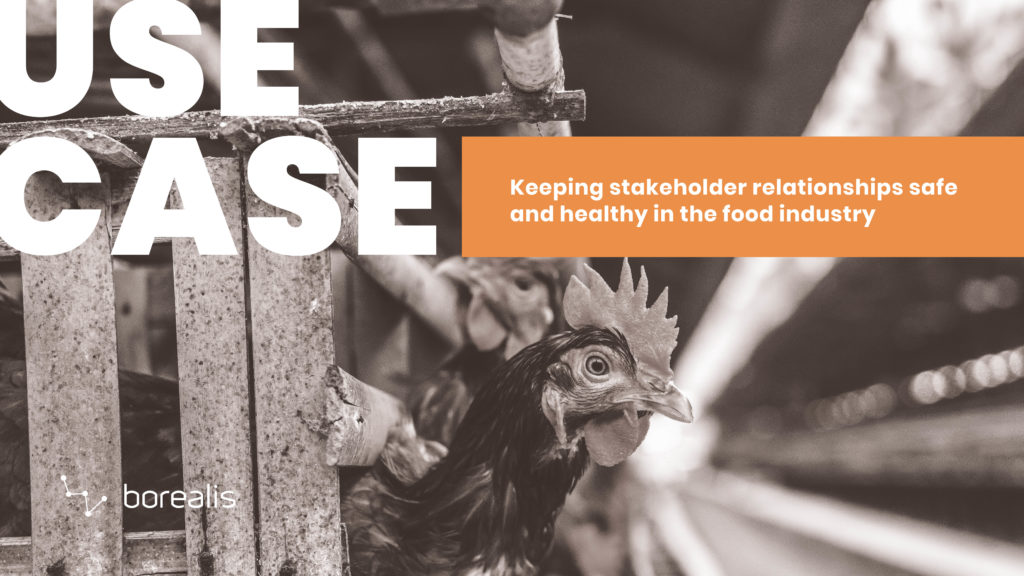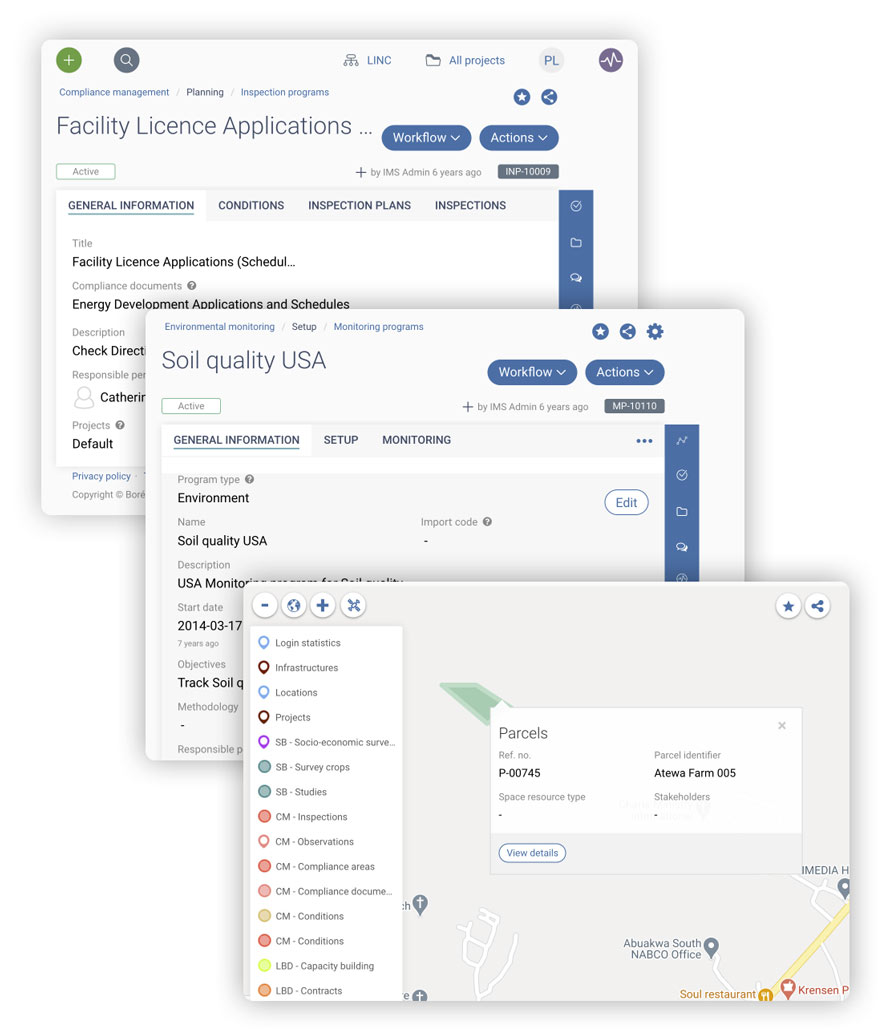USE CASE
Keeping stakeholder relationships safe and
healthy in the food industry
The stakeholder landscape in the food & beverage industry is incredibly complex. Every link of the supply chain has multitudes of stakeholders, sometimes with conflicting interests. Here’s how one vertically integrated food corporation is staying on top of its endless stakeholder relationships.
Company:
- Multinational food company based in North America
- Owns & operates hundreds of chicken farms
- Sells its poultry products directly to consumers but also through its
- restaurant chain operating in several countries
- Produces and commercially sells the feed grain used to supply its own farms
The challenge
Managing a long vertical with a lot of moving stakeholder parts. Among other things, the company needs to:
- Comply with numerous regulations in multiple countries
- Keep a close eye on new and changing regulations
- Track all issues and engagement along its entire supply chain
- Identify hotspots requiring immediate and targeted action
- Monitor environmental data in real time
- Streamline reporting and ensure the accuracy of reported data
- Create a corporate memory of all stakeholder records and
activities
The solution
Borealis Stakeholder Management Software
By switching from Excel files to a specialized stakeholder engagement software, the company was able to centralize the vast quantities of information it possesses on its many stakeholders in a single system – along with all the data relating to its sustainability strategy, environmental monitoring and compliance requirements.
The company now uses Borealis software and several modules to strengthen both day-to-day engagement activities as well as for high-level strategic planning. This has led to significant and immediate improvements:
- Silos have been dismantled
- Everyone who needs to access stakeholder information now has it right at their fingertips
- All team members can see:
- What’s already been done in the engagement plan for each stakeholder group
- What’s still to be done
- Which team member has been delegated specific tasks, and the deadlines
- Credible, professional looking reports are being generated and shared in just a few clicks
- Software interface is configured to different languages based on the location of users
How the company is using each Borealis module
Stakeholder engagement module
- Track all stakeholder engagement with government officials and regulators in all countries where it sells food and operates restaurants.
- Track all engagement with franchisees and their use of the brand.
- Record meetings and engagement with suppliers for better follow-up.
- Record engagement with local communities affected by the company’s operations.
- Track stakeholder sentiment toward the brand and its activities.
- Identify issues that matter most to stakeholders and be more proactive in addressing “dormant” issues.
- Record all stakeholder meetings and follow-ups to show it’s listening and taking action as a good corporate citizen.
- Facilitate reporting to international banks, when required.
- Monitor suppliers to ensure they are adhering to the corporation’s sustainability strategy and objectives; communicate with them to correct shortcomings or recognize success.

Compliance module
- Strengthen the overall compliance process.
- Simplify reporting by following structured, transparent methods based on industry best practices
Environmental monitoring module
Centralize data related to applicable environmental standards, such as water discharge and waste management, and easily report on them.
Land management module
Map all communications, grievances and issues relating to a specific farm, plant, franchisee or land parcel.
Track leases for restaurants.




